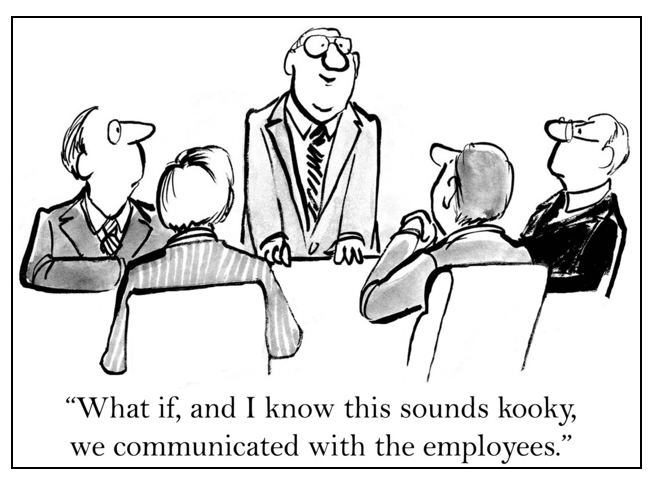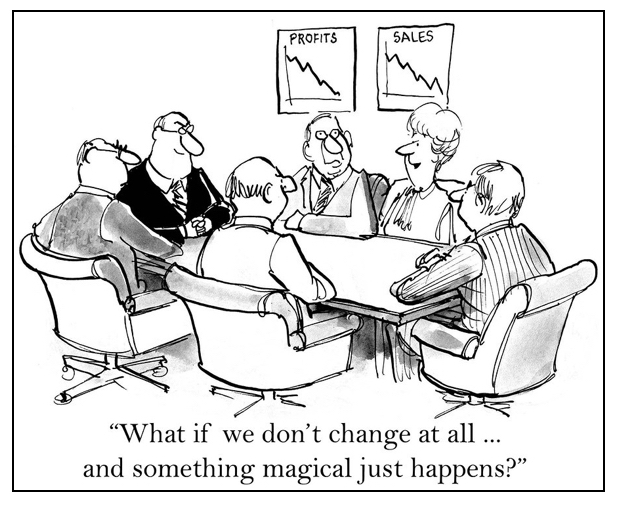 There is increasing recognition that the problems we face are too complex to be addressed by any single player. Matthew May
There is increasing recognition that the problems we face are too complex to be addressed by any single player. Matthew May
One of my favorite leadership mantras is: All of us are smarter than one of us.
Or, said succinctly, “We” is smarter than “me.”
I will never understand why some leaders, when making decisions, act like the Lone Ranger. They make decisions unilaterally. Often, their team is even surprised when the leader makes formal announcements regarding a strategic decision because they had no input into the issue and sometimes no prior knowledge that the issue was even being considered.
In my organization, I have seven direct reports. Every team member is very intelligent and deeply devoted to our organization. Why would I not ask for their input into important issues that affect our organization? When planning or making strategic decisions, why would I not solicit their insight, creativity, and judgment? I value and trust their discernment so much that I seldom make a decision without first seeking their input, and if there is broad hesitance, I yield to the collected wisdom.
Again I ask: Why would I not do this? What possible downside is there?
Robust dialogue is the key to leaders benefiting from the wisdom of others.
Robust Dialogue
Robust dialogue occurs in a group when everyone is encouraged, allowed, and even required to give their honest input on issues. The value of robust dialogue is: Every idea or plan will be improved upon when submitted to the wisdom and input of others. If your idea is a seven (on a scale from 1 to 10 with 1 indicating a bad idea and 10 an outstanding one) and you submit it to robust dialogue, it will become an eight or higher.
Robust dialogue is not just the right thing to do; it is the best thing to do. It’s not just politically correct; it is practically helpful.
The prelude to robust dialogue may sound like this:
- A leader says to his team, “I’ve got an idea I want to share with you. Please give me your honest thoughts about it.”
- A leader says to his team, “I need to make an important decision by the end of the week. Before I do, I want to get your input.”
- A team member has the freedom to say, “I think we’re going in the wrong direction on this project.”
Bossidy and Charan teach that robust dialogue is based on openness, candor, and informality.
- Openness—people are not trapped by preconceptions; they’re open-minded.
- Candor—people speak candidly and express their real opinions. Truth is valued more than harmony.
- Informality—informal dialogue invites questions, mental experimentation, and creative and critical thinking. Formality suppresses dialogue and leaves little room for debate. [Execution, page 102]
Robust dialogue will also help maintain a transparent and healthy workplace. It’s amazing how often there’s an elephant in the room that no one is willing to acknowledge. Clarke and Crossland warn, “Every time your team avoids the critical ‘real issues,’ you lose. Every time the discussion outside the meeting room—physical or virtual—is dramatically different from the discussion inside the room, you lose.”
Robust dialogue will enhance consensus among your team members. Often, we avoid challenging dialogue because we value unanimity and harmony. But when we ignore the tough issues, we inadvertently dilute any sense of consensus. True alliance is achieved only when all the major issues have been identified and wrestled with. Consensus is good, unless it is achieved too easily, in which case it becomes suspect.
You must be intentional about establishing robust dialogue as standard practice among your team. Don’t just give your team permission to engage in robust dialogue, insist on it. In general, people are less inclined to give constructive feedback to higher-status individuals. That’s why they must be given permission, and even encouraged, to speak up.
Explain to your team what robust dialogue is, why it’s advantageous, and establish it as standard practice. Set some ground rules:
- Everyone should be honest and frank with their comments but also kind and considerate. Don’t be timid about expressing your thoughts, but don’t be tacky and rude.
- When you proffer an idea and people begin to hack at it, don’t be insecure and defensive; we’re not critiquing you, we’re commenting on the idea. Don’t be “thin-skinned.”
- On major issues everyone needs to speak. Often, those with an outgoing personality will speak first and most, and those who are quiet and reserved will be reluctant to speak. By soliciting everyone’s thoughts, all voices are heard. Furthermore, those who are most opposed to an idea may be silent in the meeting but sabotage the idea later on. By soliciting everyone’s opinion, potential critics are forced to speak up.
- Assure everyone that opposing thoughts will not be punished. Robust dialogue will not flourish if people think their frankness may be used against them. Even affirm those who express disagreements and opposition.
- Make it clear that following robust dialogue, a decision will be made that may or may not satisfy everyone’s input, but that everyone should support the decision. Robust dialogue is an exercise in both open and honest communication and consensus building that should lead to communal support.
It takes a lot of emotional fortitude to establish robust dialogue as an integral part of your organization—if you’re insecure you’ll be reluctant to do so. It also requires emotional maturity—if you’re domineering, self-reliant, narrow-mined, autocratic, or manipulative, robust dialogue will be unsustainable.
How do you know if robust dialogue is happening in your organization? It’s either happening or it’s not. In other words, if you don’t frequently hear phrases like, “I don’t agree with that” or “What’s another alternative?” or, “Could we discuss that further?” or “I don’t feel entirely comfortable with that”—robust dialogue is not a part of your organizational culture. The absence of differing views, opinions, and perspectives is clear evidence that you need to proactively work to establish robust dialogue as a normal part of organization communication.
Brigadier General Ted Mercer Jr. said, “Feedback is a gift. It’s a way of giving help.” A hardy feedback system will make you, and your organization, stronger.
“In 1997, managers at Samsung didn’t question a $13 billion investment that would take the company into the automobile industry because the idea’s champion, Samsung Chairman and CEO Kun-Hee Lee, was a forceful personality and a car buff. When Samsung Motors folded only a year into production, Lee wondered why no one had expressed reservations.” [HBP Teams That Click, pg. 74]
[reminder]What are your thoughts about this essay?[/reminder]
[callout]Ann Patchett’s novel, State of Wonder, is a wondrous book. It’s not a thriller and no one gets murdered, but her wordsmithing is stunning. Her phrases will make you think, smile, and keep reading. It’s the best novel I’ve read in 2016. You’ll be transported to a foreign environment (Amazon jungle) and read about things like struggling with an 18-ft. Anaconda in a small boat and a C-section performed in the jungle of Brazil. You will never forget her main characters.[/callout]

 Relational offenses are inevitable. It’s not a matter of if you’re going to offend someone, just a matter of when and how seriously. The best and perhaps the only way to make things right is to confess your offense and ask forgiveness.
Relational offenses are inevitable. It’s not a matter of if you’re going to offend someone, just a matter of when and how seriously. The best and perhaps the only way to make things right is to confess your offense and ask forgiveness.
 When in a position of leadership, lead.
When in a position of leadership, lead.